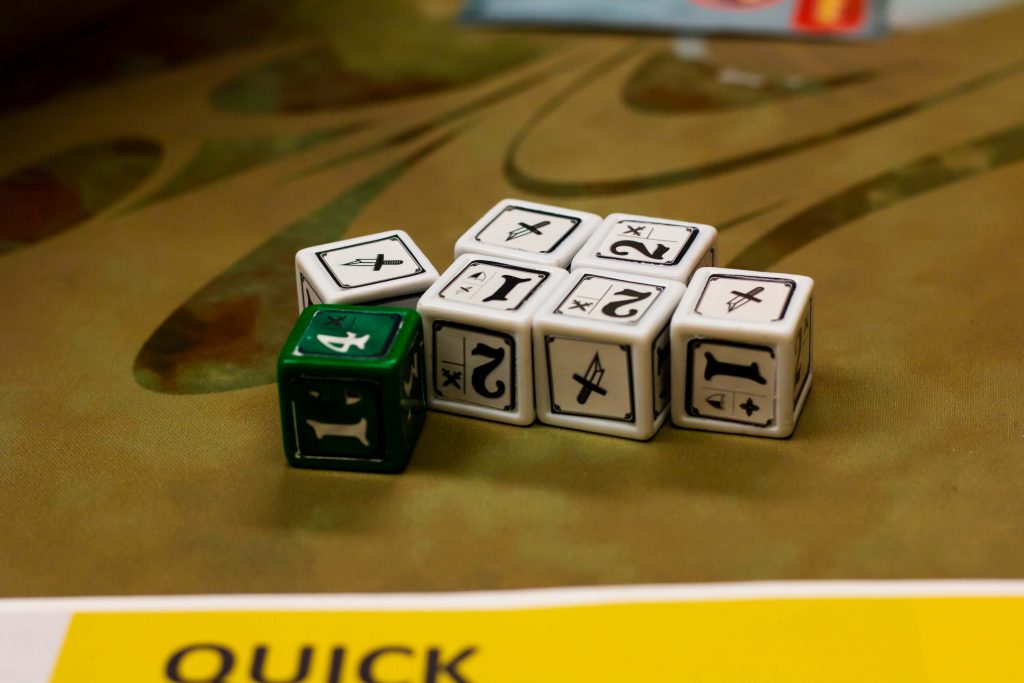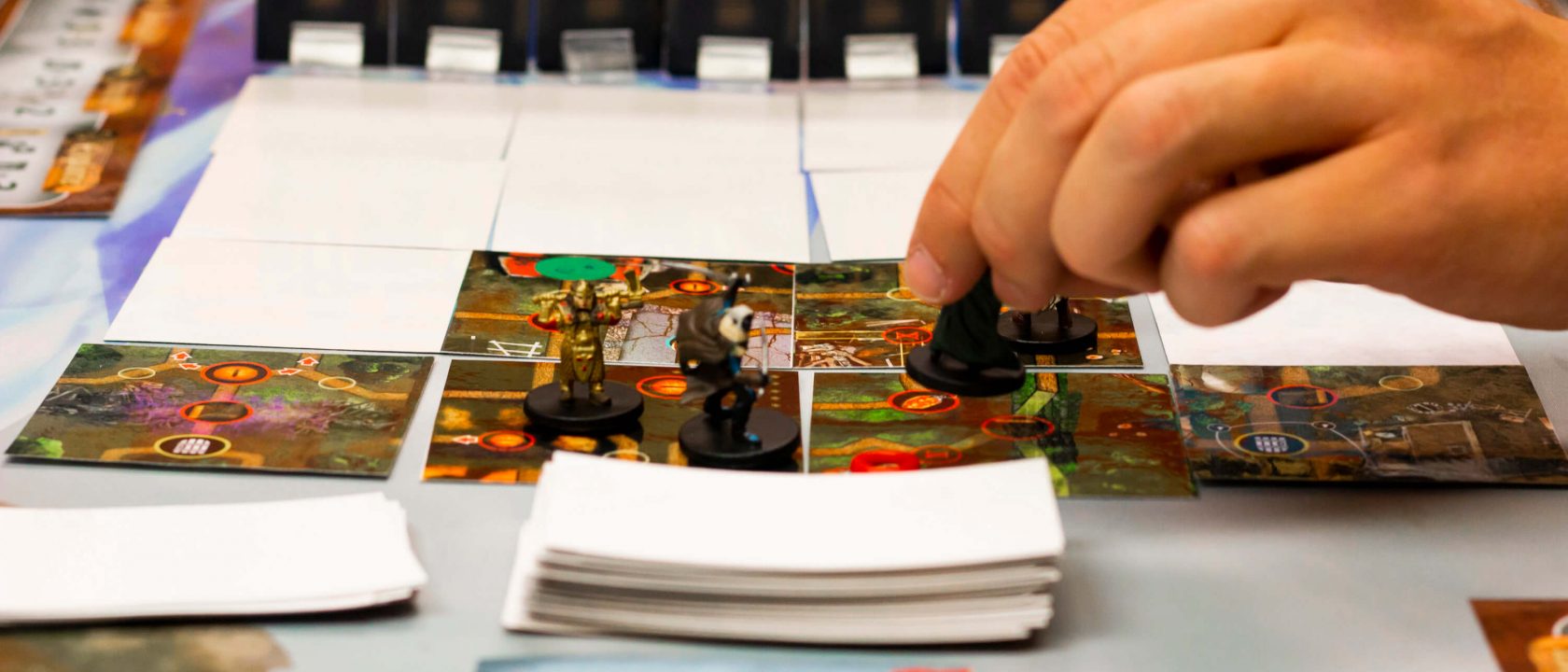
Randomness is Beautiful!
When many people think of randomness in board games they often think of dice. You have no control over what the dice will do and are stuck with the outcome. Depending on your tolerance for this kind of thing, this is either fun and interesting or unfair. I think that a happy marriage of randomness and choice make for a fun game.
The joy of the unknown is usually what keeps a game fresh. What will the dice do this time? What tile will I flip over? What weapon will be in that treasure chest? Uncertainty can be very fun.
Randomness is Ugly!
Too much of a good thing can quickly turn sour. If at any point a player believes that their choices do not significantly effect the outcome, you’ve lost them.
Depending on your design objectives most game designers want a player to believe that they won based on skill or lost due to luck. My design challenge is that 4 Keys has a good amount of randomness in it. The terrain tiles are randomly placed. The quests that show up are mostly random. All these things being said, I like to believe that your choices affect the outcome significantly.
It’s good to remember that every play tester is different and has difference tolerances or randomness. Find play-testers that mirror the type of game weight your looking to design for. Find play testers that enjoy the type of game your designing. Make sure your having a wide variety of people play your game if you can help it.
The illusion and perception of choice
One of the things that I’ve taken away from this latest test is to try and find ways that I can help a player feel like they have more control while manipulating them to get the outcome I want. In the game it’s often detrimental to reveal a tile for another player. There is a chance they might gobble up all the points before you have a chance to get to it on your turn.
What to do? Give players a bigger incentive to reveal tiles. The reality of a detriment still exists but now there is more strategy involved. Do I take some points and maybe help the next player? Giving a player simple choices creates depth. Giving them too many creates the dreaded “analysis paralysis”
Discussion points for comments
- In what ways can you give the player feed back in your game that they are making a good choice?
- In what ways can you give weight to the choices that are being made?
- Is the amount of randomness in your game appropriate for your length and audience?
- What do you do in your game to give player choices that matter while keeping the game from being like chess. ( No luck )




Leave a Reply